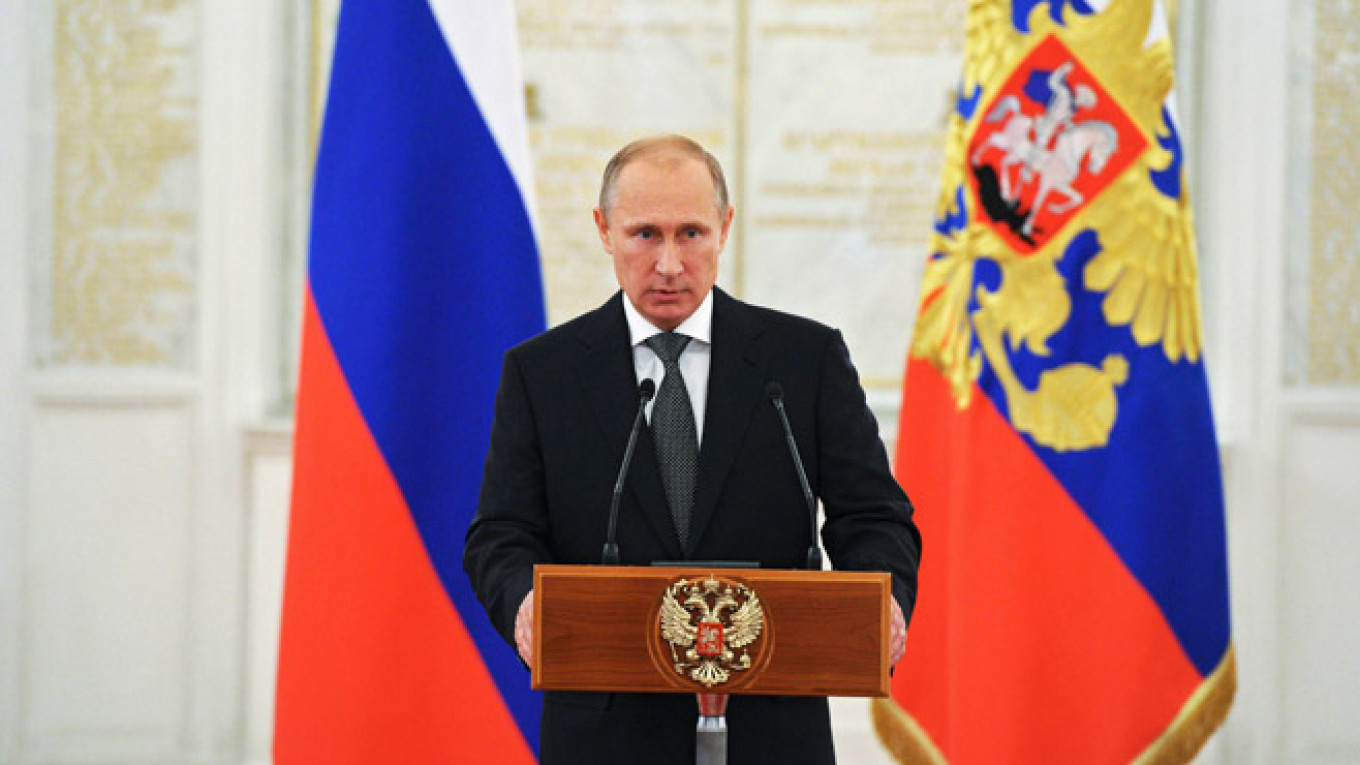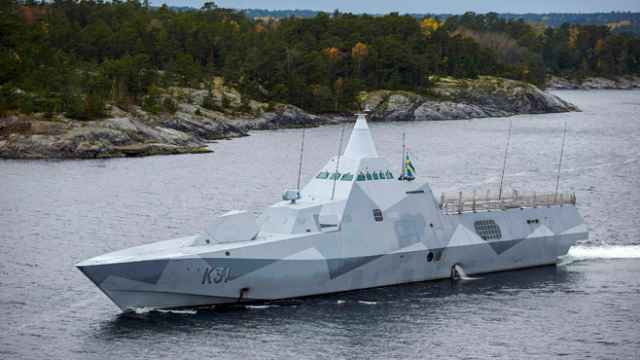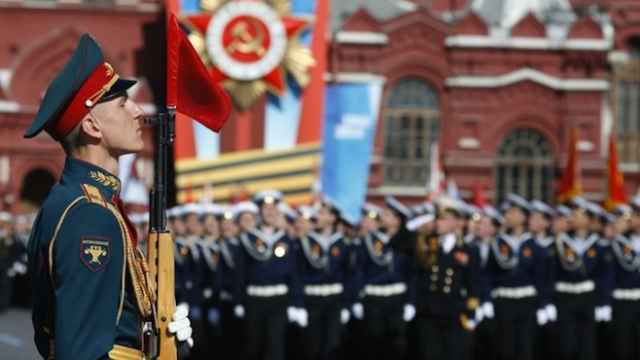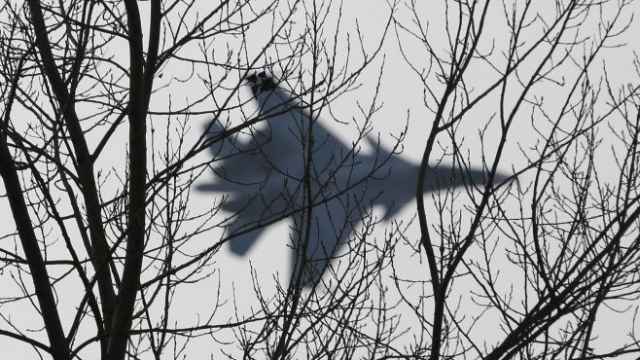Despite slowing economic growth, threats posed by former Cold War enemies mean that Russia's ongoing 20 trillion ruble ($500 billion) military rearmament program will continue as planned, President Vladimir Putin told senior military officials at a promotion ceremony on Friday.
"Past threats have not vanished and are still present," Putin told the officers, before going on to pledge support for the rearmament program that will modernize the majority of Russia's aging military hardware by 2020, according to remarks published on the Kremlin website on Friday.
The rearmament program focuses on equipping Russia's military with new ships, submarines, airplanes, nuclear missiles and battlefield equipment for Russian soldiers. It is a sweeping modernization project that hopes to revitalize almost 70 percent of the armed forces by 2020, while the strategic nuclear forces will be completely overhauled in this period.
Under the plan, Russia's national defense budget for next year will reach a record 3.3 trillion rubles ($80 billion), or 4.2 percent of the country's GDP, the head of the State Duma's defense committee, Admiral Vladimir Komoyedov, was quoted as saying by the Interfax news agency last month.
This rise in military spending comes at a time of economic stagnation for Russia as low oil prices, inflation and Western sanctions over the Kremlin's role in the Ukraine crisis all hit home.
Putin pointed to the ongoing conflict in eastern Ukraine and NATO's reinvigorated stance toward Russia as evidence that Russia faces major security threats and must spend heavily on defense.
Russia has taken an increasingly antagonistic line with NATO, which has found a renewed sense of purpose in the face of what it characterizes as a series of aggressive gestures from Moscow in the wake of its annexation of Crimea in March. NATO in recent weeks has reported a flurry of Russian fighter jets and bombers violating the airspace of its members.
With both sides pointing fingers at the other for increasing tensions, Putin told his senior officers that "attempts to upset strategic parity continue," likely referring to NATO's attempts to install ballistic missile interceptors along Russia's western frontiers.
Moscow is sensitive to any threat to its strategic nuclear forces, as Russia's nuclear strength is viewed by military planners as the only reliable means of deterring a large-scale military attack from NATO or China.
But Putin stressed that Russia's military doctrine, which is currently being revised in light of NATO's increased presence in Eastern Europe, "is solely defensive in nature." The president added that "Russia has no intention of being dragged into the confrontation that others are trying by force to impose on us," and that Russia remains open to "equal and respectful dialogue" on international and regional issues.
Contact the author at bizreporter@imedia.ru
A Message from The Moscow Times:
Dear readers,
We are facing unprecedented challenges. Russia's Prosecutor General's Office has designated The Moscow Times as an "undesirable" organization, criminalizing our work and putting our staff at risk of prosecution. This follows our earlier unjust labeling as a "foreign agent."
These actions are direct attempts to silence independent journalism in Russia. The authorities claim our work "discredits the decisions of the Russian leadership." We see things differently: we strive to provide accurate, unbiased reporting on Russia.
We, the journalists of The Moscow Times, refuse to be silenced. But to continue our work, we need your help.
Your support, no matter how small, makes a world of difference. If you can, please support us monthly starting from just $2. It's quick to set up, and every contribution makes a significant impact.
By supporting The Moscow Times, you're defending open, independent journalism in the face of repression. Thank you for standing with us.
Remind me later.






